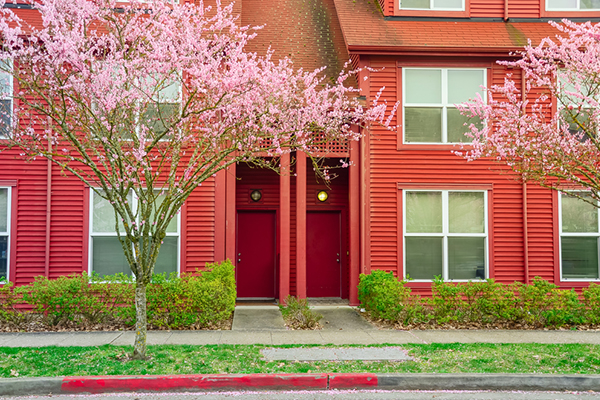Insuring Half a Duplex: Roof Damage and Ordinance or Law Coverage

By: Big “I” Virtual University Faculty
A client is purchasing half of a duplex and will rent it on a long-term lease. The underwriter says that coverage should be written on an HO3 policy with an endorsement providing coverage for rental to others. It’s not a condo, since the client will only own half of the dwelling.
Q: How would damage to the roof be handled? What about ordinance or law coverage? If the other half of the building was destroyed, would the client be forced to demise because 50% of the dwelling being destroyed triggers the ordinance or law coverage to demise the other half?
Response 1: It sounds like your client is buying one of the two units in a duplex with the intent to rent it to others. If that’s the case, I’m surprised that an underwriter would suggest writing a homeowners policy—they’re usually restricted to owner-occupied dwellings.
Once that’s settled, you’ll know which forms are available and you can find out the valuation, lease terms, furnishings, compliance with building and zoning regulations, and other details. With that information, you’ll be able to decide which coverages and limits are appropriate.
You mentioned condos, but you didn’t indicate that this was a condo. If it is, then all bets are off for the building coverage as that will be determined by the condo association and its documents. You also mention ordinance or law but you don’t provide any details on why that might be involved. Your fact-finding should uncover the information you need to address that exposure or lack thereof.
Damage to your client’s portion of the roof, or any other part of the exterior, is a valid concern. You’ll need to research the applicable laws, court decisions or ownership documents to determine what is required. For instance, if damage to the client’s part of the roof would require replacement of the neighbor’s roof, you’ll need to explore that exposure with the underwriters. It may be handled differently depending on what state you’re located in.
Similarly, there’s a risk that your client or their tenant might cause a loss—fire or water, for instance—that damages the neighbor’s unit. You’ll need to be sure there are adequate limits to address that concern.
Response 2: I don’t agree with the underwriter’s HO3 recommendation as the policy, even with the “rented to others” endorsement. The HO3 still includes the definition of “residence premises,” which means the insured must live there. The better policy would be a DP3.
But you asked about your client’s half. I think this is when a good contract with the other party would come into play. That would have nothing to do with insurance until a loss occurred, but it should say something along the lines of “if it’s the other person’s fault, the insured would be indemnified.” This part would be best addressed by attorneys.
Response 3: You didn’t mention that your client will be living in the duplex. In that case, this is rental property, and needs to be written on a dwelling fire form. Liability can be attached to the client’s current homeowner’s policy, or possibly to the dwelling fire policy if the carrier will allow it.
As far as someone else owning the other half of the structure, that can be one of the hazards of owning half a duplex. If your city has an ordinance relative to rebuilding the duplex, your client could be in a real bind if neither your client nor the other owner has increased the ordinance or law limit.
Either way, it’s always a problem with a duplex when different carriers are involved, or if neither owner has proper coverage.
Response 4: This could be a nightmare when certain losses occur. Owning half a duplex and insuring under an HO3 is all good … until it’s not. Did your client have a qualified lawyer prepare legal documents as to how the property will be operated with responsibilities for maintenance, repairs of common elements or restoration in the event of a loss? If so, did you review and provide a copy to the underwriter to discuss potential loss scenarios?
Can it be zoned as a condominium or some other legal structure that would address some of the potential issues? An article from O’Neil, Cannon, Hollman, DeJong & Laing, “Turning a Duplex into a Twindominium,” underscores your concerns. If the building is a condo, then there would be a master policy for certain structural elements with a unit owners policy for others.
Response 5: First, if the insured is not living there themselves, then it does not qualify for a homeowners policy. Even though this is half a duplex it must have some governing document that explains ownership responsibilities. It sounds more like a townhouse or condominium arrangement. Who owns the land on which it sits? How are common elements treated? Review those documents to ensure that it is insured properly.
If the building is owned by an individual as opposed to a business, it could be written on a dwelling property form like the DP3. You are correct to be concerned about adequate ordinance and law coverage, so make sure that is endorsed. Extend liability from the insured’s own homeowners policy or, if possible, add it to the dwelling property form.
This question was originally submitted by an agent through the Big “I” Virtual University’s (VU) Ask an Expert service, with responses curated from multiple VU faculty members. Answers to other coverage questions are available on the VU website. If you need help accessing the website, request login information.
This article is intended for general informational purposes only, and any opinions expressed are solely those of the author(s). The article is provided “as is” with no warranties or representations of any kind, and any liability is disclaimed that is in any way connected to reliance on or use of the information contained therein. The article is not intended to constitute and should not be considered legal or other professional advice, nor shall it serve as a substitute for obtaining such advice. If specific expert advice is required or desired, the services of an appropriate, competent professional, such as an attorney or accountant, should be sought.










